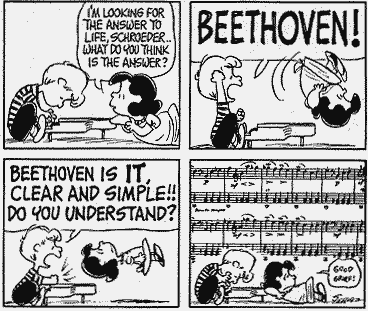Diverse Dilldalltråden 1.5
- Trådstarter Boffen
- Startdato
Diskusjonstråd Se tråd i gallerivisning
-
Finsk paraplydrink:
Vedlegg
-
79.3 KB Visninger: 41
GGjestemedlem
Gjest
[No message]Vedlegg
-
29.6 KB Visninger: 397
Sirkusdyrene øver inn stadig nye kunster for å tekkes et kresent publikum.Vedlegg
-
47.8 KB Visninger: 376
- Ble medlem
- 19.07.2006
- Innlegg
- 1.876
- Antall liker
- 9
- Ble medlem
- 14.07.2003
- Innlegg
- 790
- Antall liker
- 6
Tongue-in-cheek artikkel fra British Medical Journal:
BMJ. 2003 Dec 20;327(7429):1459-61.
Parachute use to prevent death and major trauma related to gravitational challenge: systematic review of randomised controlled trials.
Smith GC , Pell JP .
Department of Obstetrics and Gynaecology, Cambridge University, Cambridge CB2 2QQ.
Republished in: Int J Prosthodont. 2006 Mar-Apr;19(2):126-8.
OBJECTIVES: To determine whether parachutes are effective in preventing major trauma related to gravitational challenge. DESIGN: Systematic review of randomised controlled trials. DATA SOURCES: Medline, Web of Science, Embase, and the Cochrane Library databases; appropriate internet sites and citation lists. STUDY SELECTION: Studies showing the effects of using a parachute during free fall. MAIN OUTCOME MEASURE: Death or major trauma, defined as an injury severity score > 15. RESULTS: We were unable to identify any randomised controlled trials of parachute intervention. CONCLUSIONS: As with many interventions intended to prevent ill health, the effectiveness of parachutes has not been subjected to rigorous evaluation by using randomised controlled trials. Advocates of evidence based medicine have criticised the adoption of interventions evaluated by using only observational data. We think that everyone might benefit if the most radical protagonists of evidence based medicine organised and participated in a double blind, randomised, placebo controlled, crossover trial of the parachute.
PDF her.Pass på skolissene, ellers kan det bli dyrt!
http://www.dn.no/borspause/article756689.ece
500.000 pund og ikke forsikra? da får dem neste skylde seg selvJøgga skrev:Pass på skolissene, ellers kan det bli dyrt!
http://www.dn.no/borspause/article756689.eceZZomby_Woof
Gjest
Kandidat til årets Darwin award? http://www.dagbladet.no/2010/03/23/nyheter/utenriks/russisk_rulett/bryllup/tragedie/10984402/ZZomby_Woof
Gjest
Og for ikke å snakke om at de var utstilt 'et fall' fra publikum..duality skrev:
500.000 pund og ikke forsikra? da får dem neste skylde seg selvJøgga skrev:Pass på skolissene, ellers kan det bli dyrt!
http://www.dn.no/borspause/article756689.eceGOES THROUGH YOUR MIND WHEN SOMEONE SAYS "LET'S GO FOR A DRINK"?Vedlegg
-
56.2 KB Visninger: 45
-
68.9 KB Visninger: 42
-
67 KB Visninger: 39
- Ble medlem
- 28.11.2002
- Innlegg
- 4.140
- Antall liker
- 314
Endelig fant jeg rette kjøkkengardiner:
 G
GGjestemedlem
Gjest
GGjestemedlem
Gjest
[No message]Vedlegg
-
166.5 KB Visninger: 37
[No message]Vedlegg
-
74.5 KB Visninger: 26
SSlubbert
Gjest
Dette er "Hjernevask" bare med motsatt fortegn; "Individuals who insist that all interventions need to be validated by a randomised controlled trial needs to come down to earth with a bump." Hvis Lorentzen hadde lest denne ville han sittet bedre i det i dag...Paal Iksom skrev:Tongue-in-cheek artikkel fra British Medical Journal:
BMJ. 2003 Dec 20;327(7429):1459-61.
Parachute use to prevent death and major trauma related to gravitational challenge: systematic review of randomised controlled trials.
Smith GC , Pell JP .SSlubbert
Gjest
Vedlegg
-
25.8 KB Visninger: 471
SSlubbert
Gjest
Dags for å synge denne i dag.
GGjestemedlem
Gjest
Er Julius for gammel til å bli politisjef?
http://www.dagbladet.no/2010/04/02/nyheter/thailand/utenriks/11113749/GGjestemedlem
Gjest
GGjestemedlem
Gjest
SSlubbert
Gjest
Geniale dubs:
GGjestemedlem
Gjest
Vedlegg
-
56 KB Visninger: 299
GGjestemedlem
Gjest
Hvor skummelt galt det kan gå når man putter fascistoide tomskaller i viktige stillinger. :-\
Minister for Digital Britain thinks an IP address is an "Intellectual Property address"
Vedlegg
-
29.7 KB Visninger: 294
Kommentar under IP-artikkelen:
"And TCP stands for trademarks, copyrights and patents. Hence TCP/IP."
;DAnbefalt påkledning for besøkende til årets fotball-VM:Vedlegg
-
22.2 KB Visninger: 257
SSlubbert
Gjest
Ny bok fra David Icke! Mannen som avslørte 911-konspirasjonen, Illuminati og NWO tar den ett skritt videre: His most staggering revelation is that the Earth and the collective human mind is manipulated from the Moon, which, he says, is not a heavenly body, but an artificial construct a gigantic spacecraft (probably a hollowed-out 'planetoid') which is home to the extraterrestrial group that has been manipulating humanity for aeons.
Be afraid, be very afraid.
Det er ikke våset til David Icke, men at folk ser ut til å tro på det som gjør meg litt skremt:Slubbert skrev:Be afraid, be very afraid.
http://www.reuters.com/article/idUSTRE6374B220100408
"The ting about common sense is that it is not so common."Det var en gang en hundVedlegg
-
266.3 KB Visninger: 201
SSlubbert
Gjest
Vedlegg
-
57.8 KB Visninger: 175
GGjestemedlem
Gjest
An Australian publisher has had to pulp and reprint a cook-book after one recipe listed "salt and freshly ground black people" instead of black pepper.
Penguin Group Australia had to reprint 7,000 copies of Pasta Bible last week, the Sydney Morning Herald has reported.
http://news.bbc.co.uk/2/hi/asia-pacific/8627335.stm -
-
Laster inn…
Diskusjonstråd Se tråd i gallerivisning
-
-
Laster inn…



















